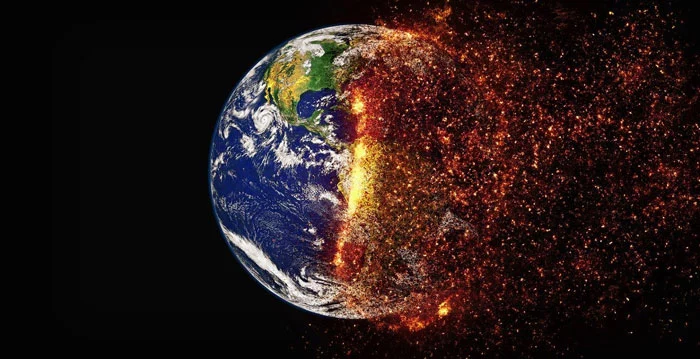The Happy Path
 Source: https://www.ekoenergy.org/de/extras/climate-change/
Source: https://www.ekoenergy.org/de/extras/climate-change/
If there is no other hyper-crisis coming, the main topic in the 21st century will be the reduction of the global CO2 emissions. One part of the solution is technological, but the other part is a change in our society, more concretely a change in everyones lifestyles which means a change in our consumer behavior. A prophecy: The future versions of ourselves will probably buy refurbished or recycled products instead of completely new products, vegan or vegetarian food instead of meat products, electric-powered instead engine-powered products, CO2 neutral services instead of services that are causing CO2 etc. etc. etc.
But how do we become this super eco-friendly humans? Or in other words, how can we speed up the process to change an entire society from zero to hero?
Let’s dive into the micro-level to find a possible answer for this question. To understand the lifestyle of entire societies (cultures) you have to understand the microlevel of financial spending on a daily basis.
Fact No. 1 is: The economy is getting rougher for low to mid-income households, which is the majority on this planet. Consequently, in each and every decision of our life the price matters. We want to reduce costs wherever it is possible, to save more money for a loan, a car, children, bad times etc. This will not change in the next decades due to increasing energy and living costs, the expansive transformation of the economy itself and the tremendous costs of the first climate change effects on many countries.
Fact No. 2 is: Time itself is getting more and more scarce also thanks to social media and the hyper-attention economy. Still, economic decisions have to account the less time we have to make research to find THE product or service that we want. But what do we want, or should we want related to the need to reduce our ecological impact? I call these new class of items “happy products”, products that are convenient, functional and sustainable at the same time. A lot of small companies and startups work on these happy products, but it is mostly not so easy to find them in the sea that consists of mostly unhappy products.
My hypothesis is that we change on the crossroads of daily consumption and easy access to the happy products world plus a bit of social-driven motivation to accelerate needed change of consumerism.
Now let's build a product based on this hypothesis. Easy, right? No, but this could be a starting point for an exciting product development journey.
Related Notes (unstructured)
The Happy Path is a sustainable community with a collection of (sustainable) happy products where you can share thoughts about them, exchange ideas and find the right happy product or service for you - How do we make better life choices for a happier life (for us, for the world) by handpicked product and service recommendations? - Let’s do something crazy and combine these three ideas, the idea of an Amazon for sustainability, a donation platform for the fight against the climate crisis (and their effects) and a personal tracker for financial your financial management to ONE solution - What changes the climate crisis game is how we spend our money. - How can we influence what people buy? - Do we really need so much stuff (resources), think about concepts as minimalism? - Do not reduce quality, but reduce clutter and stress - Build the best for free financial management app on the market, create a user base and apply the happy products to daily life consumer choices - Financial Management contains naturally Inventory Management (what do we have / own)- This could be for example represented as the User Interface in role play computer games: Select your newly acquired item to a happy product (or not) - Nearly each category of items (products/services) has eco-friendly happy products - The app shows recommendations - Select a happy product recommendation to add to your item list and become step-by-step more eco-friendly - The app shows possibilities for a happier life which means the app gives statistical recommendation what others do/use/spend … Your monthly electricity bill is higher than the average (and as recommended by the …), you could try to save more energy by changing to these happy (eco-friendly) products, or change to a happy electricity supplier that has better pricing and is eco-friendly - Revenue Model: Affiliates / Sponsored (but hand-picked) Products/Services - Use is for free, also free for NGOs (climate protection projects)Feedback
Back to top